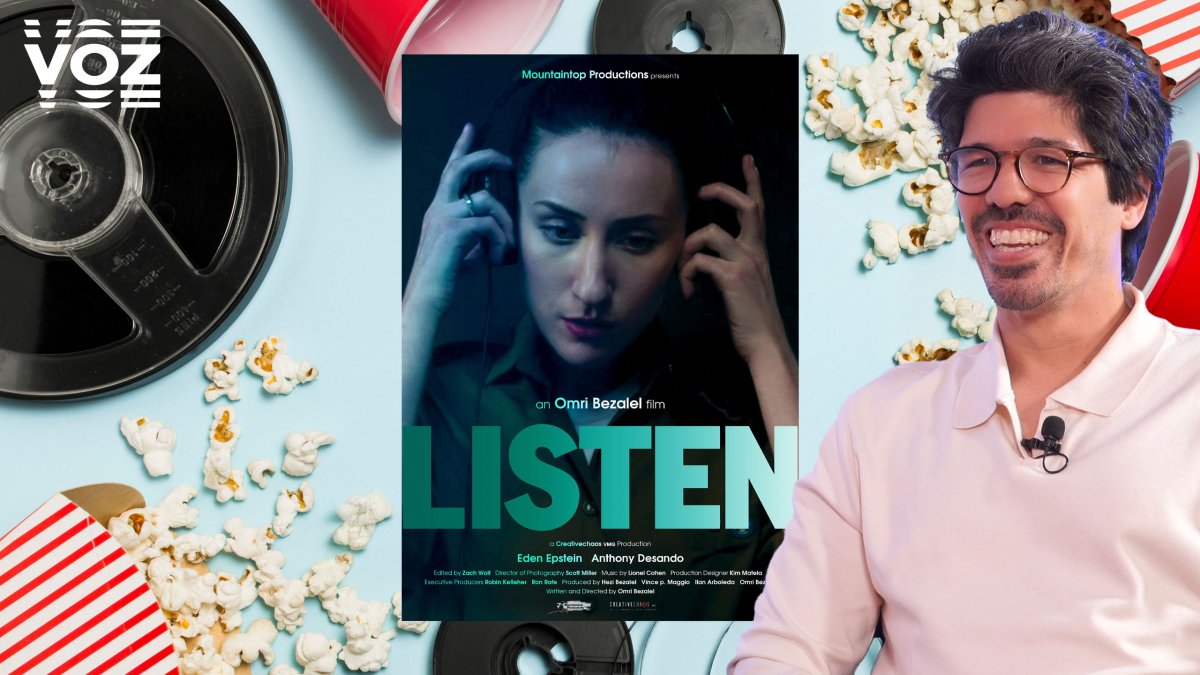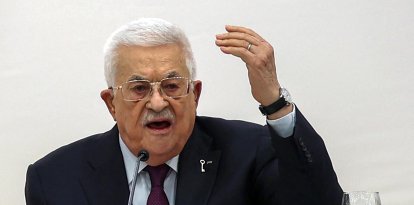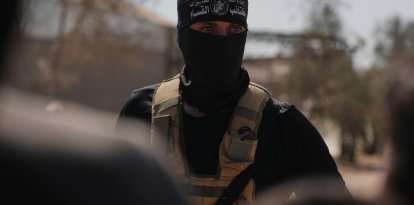REVIEW
Sit, 'Listen': The 'complexities' of Israeli military espionage in Omri Bezalel's upcoming film
Starring Eden Epstein, "Listen" tells the story of a young woman in the Israeli military's intelligence unit. VOZ spoke exclusively with its director.

Director Omri Bezalel
"You guys, you get a name and a picture, and then you take him out, you shower, you go to sleep. But that name doesn't… poof… come from thin air," says Dara, a young Israeli in the intelligence (espionage) units. "I'm the one who sits and listens [to him]." (She listens to terrorist plans, yes, but also to wedding plans, cooking recipes, family events...).
Her friend, a member of the navy, is listening to her, across a table like any other at a restaurant like any other in Israel. The soldier continues, saying she knows "everything" about the eliminated, "I know everything about his family." "So maybe there's something personal about pulling the trigger or wielding the knife, but it doesn't come close to this."
The scene appears in "Listen," the brand-new film by director Omri Bezalel, but it also reflects a real conversation, at NYU, more than five years ago. Bezalel, a student, listens to a compatriot, a student herself, who served in Unit 8200, tasked with gathering intelligence in Gaza.
"She was talking about the psychological effect that it had on her," Bezalel recalls now, years later. "And she said: No one tells these stories… about intelligence… these very young people,'" 20, 22-year-olds, "these young females," who spend hours and hours and more hours listening to Gazans, terrorists and civilians.
VOZ had exclusive access to "Listen" and spoke to its director. Its synopsis (inhale deep): Israeli military intelligence soldier Dara Nevo (Eden Epstein, "SEE," "Sweetbitter") tries to track down a fellow soldier captured by Hamas before he's exchanged for 1,000 Palestinian prisoners, "terrorists," Dara would point out, including, number 948 on the list, Saahib il-Shafaah, mastermind of the terrorist attack that killed the protagonist's father.
Around that dramatic, galloping plot (the hour of exchange is getting closer and closer, it is here, now, now, now), different moral positions within Israel are outlined. Herein lies, in my humble, most humble opinion, the treasure (or a treasure) of "Listen." To take one example: there are characters in the film (and in Israel, people) who oppose a hostage exchange that will set free the murderer of their father, son, mother, cousin or friend. There is also a mother who desperately demands the release of her son in exchange for the same murderer of fathers, sons, mothers, cousins or friends. But the captive son, attention here, is a soldier, therefore his capture, though regrettable, could it not be taken more or less as a part of the trade? But, it is also true, he is barely in his twenties, and the service is not voluntary. But released terrorists could commit future attacks, as has happened in the past. But...
In the protests for and against the swap, whose side do we stand on?
This careful tension of wills, of pains, must have been scripted. It is evident. Its director confirms: "This movie, every movie ultimately is about relationships." "Every good film is good characters and the relationship between the characters." He, an Israeli, with military service behind him, carries in his own experience these "complexities," which, he tells VOZ, he wanted to project on screen... but without preaching. "I really wanted to present a complicated situation, there are various point of views in the film where you can find that person who has your point of view". Although, he says, there's no need to plant a flag either. Just watch, understand. Listen.
Full interview with the director of 'Listen'
What were the film's boycott attempts like? Did his five years in the Shayetet 13, the Israeli SEALs, play into the film? Did he feel that moral strain during his own service? Omri Bezalel spoke exclusively with VOZ:
























